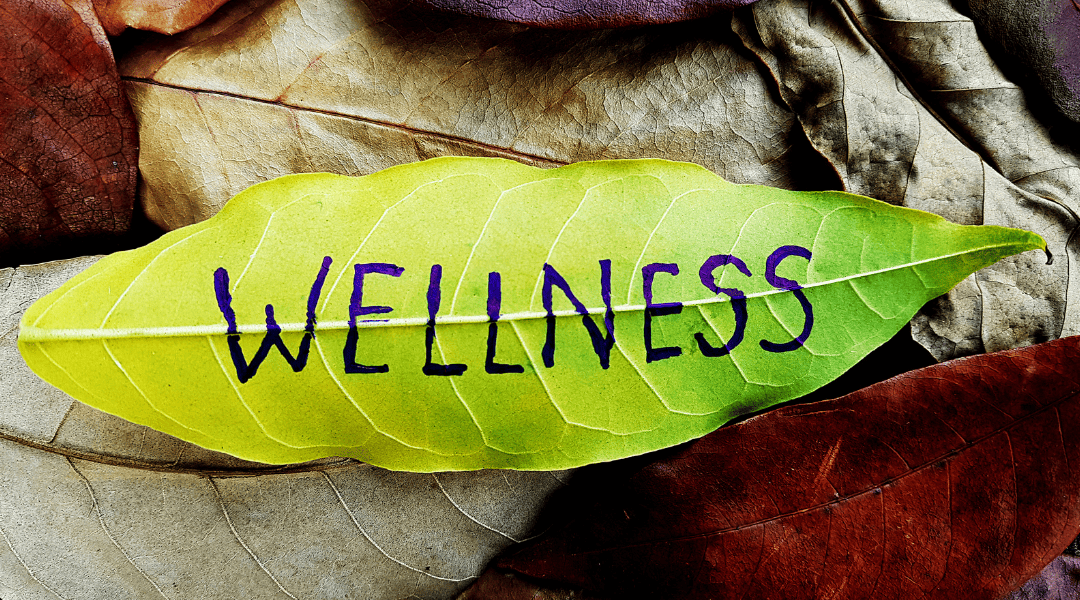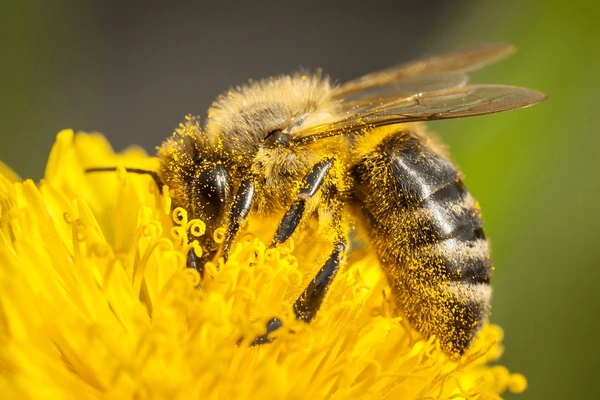READY TO GET STARTED?
REQUEST A FREE ESTIMATE
Fill out the form below or call (888) 466-7849 for a free, no-obligation estimate.

Are pests intruding on your peaceful home while leaving you concerned about the environment and your family’s well-being? For homeowners in Fort Myers, the solution is simple and sustainable—green pest control. This eco-friendly approach to pest management is not only better for your health but also helps protect the environment, local ecosystems, and future generations.
This comprehensive guide explores why so many Fort Myers homeowners are making the switch to green pest control. From guarding your indoor air quality to promoting a healthier community, you’ll learn all the compelling benefits of choosing eco-conscious pest management solutions.
Green pest control refers to pest management methods that use natural, environmentally less-toxic products rather than traditional chemical pesticides. This eco-friendly alternative combine prevention strategies, non-toxic pest repellents, and sustainable practices to deliver effective results with minimal harm to people, pets, and the planet.
Now, let’s dive into why these sustainable pest control methods are gaining traction with eco-conscious homeowners in Fort Myers.
One of the most significant advantages of green pest control is its reliance on natural ingredients, which significantly reduces its environmental impact. Traditional pest control often employs harsh chemicals that linger in soil, water, and air, posing risks to non-target organisms such as birds, beneficial insects, and plants.
By using eco-friendly alternatives you can ensure that:
Fort Myers homeowners who choose green pest control are not only protecting their homes but also taking meaningful steps to preserve Florida’s lush natural ecosystems.
Did you know that some traditional chemical pesticides can compromise the quality of indoor air, leaving harmful residues that may take days or even weeks to dissipate? Residual chemicals can irritate respiratory systems, trigger allergies, and exacerbate chronic conditions like asthma. For families with children or elderly members, these risks are especially concerning.
Non-toxic pest control products are crafted to eliminate pests effectively without harming your home’s air quality. By switching to these less-toxic solutions, you can create a smarter, healthier living environment for everyone in your household.
While traditional pest control methods may offer quick fixes, they often fail to address the root causes of pest infestations. Green pest control, on the other hand, emphasizes prevention and sustainable solutions.
This proactive approach ensures fewer pests over time, leading to reduced treatment costs and long-lasting peace of mind.
Florida is blessed with diverse and delicate ecosystems. However, chemical pest control disrupts this balance, often killing beneficial insects such as bees, ladybugs, and butterflies. These organisms play critical roles in pollination, pest control, and maintaining the health of local flora.
Fort Myers homeowners recognize the importance of protecting these ecosystems, and green pest control allows them to contribute to the conservation of their community.
By switching to green solutions, you’re prioritizing what matters most—your family’s health, your home’s integrity, and the environment you cherish.
By making green pest control a part of your home management plan, you’re joining a growing community of environmentally responsible homeowners shaping a healthier future.
One of the biggest perks for Fort Myers residents choosing green pest control is the peace of mind it brings. Knowing that your pest management methods are eco-friendly, healthier for children and pets, and sustainable for the planet allows you to rest easy. You can trust green pest control to deliver results without sacrificing well-being or ethics.
If you’re ready to take the first step toward a healthier, smarter home, reach out to your Fort Meyer’s local team of pest control experts today. Together, we can help you create a pest-free environment while staying true to your values.
Because when it comes to your health and the environment, green is always the smarter choice.

Bees are some of Georgia’s most essential pollinators, yet they face increasing threats from habitat loss, pesticides, and climate change. For homeowners looking to cultivate beautiful and eco-friendly gardens, planting bee-friendly plants can provide a non-toxic environment for these critical pollinators, all while enhancing the vibrancy of backyard spaces.
This blog explores the best bee-friendly plants for Georgia gardens, including native flowers, beneficial herbs, and flowering trees and shrubs. Whether you’re a seasoned gardener or just starting your green-thumb journey, these plant recommendations will help you create an inviting habitat that supports pollinator health.
Before we dig into plant recommendations, it’s important to highlight why bee-friendly gardens matter:
By including the right plants, you enable bees to thrive while also enjoying a more stunning, productive backyard. Now, let’s explore the best options for your Georgia garden.
Georgia’s climate is rich in biodiversity, making it an ideal environment for native flowers. These plants naturally thrive in the region’s soil and climate while offering crucial resources to native bees.
Purple Coneflower is a favorite among gardeners and pollinators alike. With its daisy-like petals and vibrant purple hue, this perennial attracts numerous bee species, including bumblebees and carpenter bees. It’s hardy, drought-resistant, and blooms throughout summer, providing lasting nourishment.
Known for its golden-yellow petals and dark centers, Black-Eyed Susan is a pollinator magnet. These vibrant flowers not only attract bees but also support butterflies and songbirds.
Coreopsis, often called “tickseed,” is a cheerful perennial that thrives in Georgia gardens. Bees love their bright yellow flowers, which bloom prolifically when exposed to full sunlight.
Lavender serves a dual purpose in gardens, offering a soothing fragrance to humans and a rich source of nectar to bees. Its tall, purple flowering spikes are irresistible to a variety of pollinators.
While most people grow basil for its culinary uses, it’s also a bee-loving herb if allowed to flower. Its small clusters of white or purple blooms provide nutrients for pollinators throughout the season.
Rosemary’s evergreen foliage and tiny blue blooms make it a favorite in Georgia gardens—both for pollinators and gardeners. Its flowers can appear even in winter, providing much-needed nectar during colder months.
Flowering trees and shrubs create a stunning visual centerpiece in your yard while offering significant benefits for pollinators. These larger plants serve as vital food sources and shelter for bees in your region.
One of Georgia’s most beloved native trees, the Redbud graces gardens with its vibrant pink blossoms in early spring. Its flowers are among the first food sources for bees after winter hibernation.
The Tulip Poplar, often referred to as the “bee tree,” features distinct yellow-green flowers that are highly attractive to bees. This towering tree is a staple for pollinators looking for abundant nectar.
Nothing captures the beauty of Southern gardens quite like the Southern Magnolia. Its large, fragrant white blossoms are not only a visual feast but also a rich nectar source for native pollinators.
After selecting the right plants, the following tips will ensure your Georgia garden remains a bustling bee haven:
By implementing these practices, you’ll create not just a beautiful garden, but a thriving ecosystem that supports pollinators in the Georgia region.
Bee-friendly gardening is more than just a trend—it’s an investment in the environment and the future of pollinators. By planting native flowers, herbs, and flowering trees and shrubs, you’re building a sanctuary for bees while enjoying vibrant blooms, fragrant herbs, and a healthier landscape.
If a beehive has ended up in an unwanted place on your property, our honeybee experts are here to help! Contact our team for eco-friendly pest control solutions to protect both your home and these essential pollinators.

Pest problems can feel like a never-ending battle, especially in Naples, where the warm, humid climate creates the perfect breeding ground for unwelcome critters. While conventional chemical pesticides might provide a temporary fix, they can pose significant risks to your health, your home, and the environment. The good news? Eco-friendly pest control solutions are not only effective but also sustainable and less-toxic. Check out our green pest control tips for use in your Naples home.
Before diving into the tips, let’s discuss why eco-friendly pest control is the way to go. Traditional pesticides often contain harmful chemicals that linger in your home, garden, and even the local water supply, putting both your family and wildlife at risk. By opting for green pest control methods, you can protect your home without compromising your health or the environment. Whether you’re protecting your Naples home or contributing to environmental preservation, adopting these green strategies can be a win-win!
Natural pest control focuses on using non-toxic techniques to manage pests safely, without harming your family, pets, or the environment. Here are a few simple ways to implement natural methods effectively:
Embracing natural pest control methods allows you to avoid introducing toxins into your home while effectively keeping pests at bay.
The best way to deal with pests is to prevent them from entering your home in the first place. By sealing potential entry points, you can dramatically reduce the likelihood of an infestation.
Sealing entry points is a simple yet powerful step to minimize pest problems before they start.
Your yard can be transformed into a natural barrier against pests. By planting certain eco-friendly plants, you can deter insects and rodents while creating a beautiful garden space.
By incorporating these eco-friendly plants into your garden, you’re not only enhancing your home’s beauty but also creating a pest-resistant outdoor space that supports sustainability.
Living in Naples doesn’t mean you have to accept pests as part of the deal. With these green pest control tips and experts near you, your home can remain a healthy environment for your family while minimizing harm to the planet. From natural sprays and beneficial predators to sealing entry points and planting pest-repellent gardens, these solutions are both simple and effective. Contact a pest control company near you today for a free quote.

Bees are some of the hardest working creatures out there. They pollinate flowers, fruits, and vegetables, making our gardens grow and keeping our food supply strong. If you’re living in Metro Atlanta and want to welcome more bees to your yard, it’s easier than you might think! By making a few small changes, you can create a bee-friendly yard that helps these vital pollinators thrive. Here’s how.
Bee populations have faced many challenges over the years—things like habitat loss and climate change. Without bees, a lot of the plants we rely on for food and beauty wouldn’t thrive. Creating a bee-friendly yard is one-way homeowners can make a big difference. Even small adjustments on your property can provide bees with the resources they need to keep buzzing and pollinating.
Not sure where to start? Here are some simple steps to transform your yard into a haven for pollinators.
Native plants are like a bee’s favorite restaurant—they provide the perfect food and habitat. Bees especially love plants that produce nectar and pollen, so consider adding a variety of flowers, shrubs, and trees that bloom at different times of the year to feed them throughout the seasons.
Some great options for Metro Atlanta include:
Having a mix of colors, shapes, and sizes will also attract a wider variety of bees and other pollinators.
Bees are highly sensitive to pesticides, herbicides, and other chemicals. Instead of using traditional weed killers or harsh sprays, try natural alternatives. For example:
Going chemical-free is not only better for bees but also for your entire backyard ecosystem. Look for green pest control options!
Bees get thirsty too! Add a simple water source to your yard, but make sure it’s bee-friendly. A shallow dish of water with pebbles or floating wood pieces will help bees drink without risking them getting stuck. Change the water regularly to keep it fresh.
While we love a well-manicured yard, bees appreciate a bit of wildness. Allow part of your garden to grow naturally, leaving wildflowers or clovers to sprout. You can even create a small “bee corner” filled with pollinator-friendly blooms and plants that don’t need much trimming.
Not all bees live in hives like honeybees. Many, like bumblebees and solitary bees, make their homes in the ground or inside hollow stems. Consider leaving some bare soil or building a small bee “hotel” from wood, bamboo, or other natural materials. It’s a fun project and a great way to attract nesting bees.
The best part of creating a bee-friendly yard is that the effort pays off in more ways than one. Bees will love your yard, and you’ll benefit too! Here’s how:
You don’t need to overhaul your entire yard to make it bee-friendly. Start small by planting a few native flowers or setting out a water dish. Little changes can make a big impact over time.
If you’d like more tips or professional help with creating a bee-friendly space, or if you need assistance managing an unexpected hive, reach out to your local bee relocation company. They’re there to support you and the bees, making your yard both beautiful and welcoming for pollinators!

Bees are essential to our ecosystem. They pollinate flowers, fruits, and vegetables, making them integral for Tennessee’s lush gardens and thriving agriculture. However, typical pest control practices often inadvertently harm these invaluable insects. As a Tennessee homeowner, balancing pest control with environmental responsibility is a challenge—but not an impossible one. This guide focuses on bee-friendly pest control practices that help protect these vital pollinators while keeping your home and garden pest-free.
Bees are not just important for the environment—they contribute directly to the economy of states like Tennessee. From pollinating crops like apples, watermelon, and pumpkins to supporting wildflower blooms that benefit local wildlife, bees play a huge role. Unfortunately, widespread pesticide use has been a key contributor to the decline of bee populations. This decline could have dire consequences for agriculture and biodiversity.
But with a few mindful changes to your pest control approach, you can support pollinator health while maintaining your home’s comfort and well-being. Read below to find out how!
When using pesticides, the timing of your application is one of the most critical factors for bee protection. Bees are most active during the daytime—typically from mid-morning to late afternoon. Applying pesticides during these peak hours increases the likelihood of exposing them to harmful chemicals. To minimize the risk, consider scheduling treatments in the early morning or late evening when bees are less active.
Instead, opt to spray pesticides:
By targeting these times, you reduce the chances of directly affecting bees while ensuring pests are still managed effectively. You can also ask your local pest control company if they can accommodate bee-friendly application times to further protect these important pollinators.
Not all pesticides are created equal. Some are formulated to minimize harm to beneficial insects like bees. When choosing a professional pest control company, look for those explicitly labeled as “bee-protected or “non-toxic to pollinators.”
Here’s what to avoid and what to consider:
These products allow you to take care of garden pests without risking the health of your local bee population. If in doubt, consult a pest control professional who prioritizes environmentally-friendly solutions.
Blanket-spraying your entire yard is not only unnecessary but also harmful to the environment. This approach increases pesticide exposure for non-targeted species, including bees. Instead, focus on spot-treating problem areas where pests are concentrated.
How to spot-treat effectively:
Spot-treating is a more targeted strategy that minimizes collateral damage to bees and other beneficial insects.
Bees rely on flowering plants for food, so when applying pest control measures, it’s crucial to leave a portion of your yard bee-friendly. Reserving areas of blossoming plants untouched by pesticides creates foraging zones for pollinators.
To encourage a pollinator environment:
By creating these havens, you ensure that bees can continue to thrive, even while managing pests elsewhere in your yard.
Companion planting involves pairing specific plants that naturally repel pests with your garden crops. For instance:
This natural method not only reduces your need for chemical pesticides but also supports pollinator activity.
While dandelions and clovers may be considered weeds, they’re important food sources for bees. Limiting mowing in areas where these plants grow allows pollinators to access vital nutrients, particularly in early spring.
For a sustainable pest control approach, partner with an eco-friendly company that prioritizes honeybee protection. Many services in Tennessee offer solutions that target pests while keeping pollinators unharmed. Homeowners can help by adjusting pesticide timing, choosing non-toxic treatments, and creating foraging zones. If a beehive ends up in an unwanted spot, contact our honeybee experts to responsibly rehome it.